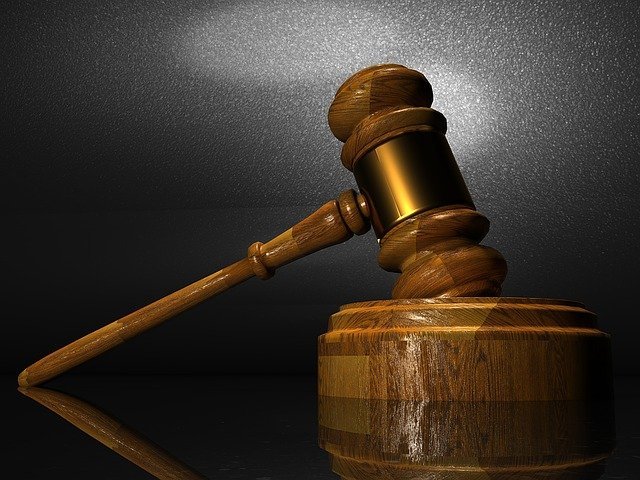Steemit crypto Academy season4 Beginners course-Task7:DeX,Cex,popular Exchanges and Trading cryptos by @viviandaniella

can cryptocurrencies exchanges be regulated? How do regulations affect the crypto world? Name some countries with regulations?
Introduction
Before the invention of blockchain and cryptocurrency, every country of the world had their countries which is considered as a legal tender. However, with the introduction of cryptocurrencies into the financial sector of world, most economies of world feel that their currency was under threat and could be pushed or the market is stringent regulations are not being introduced to manage the situation. This issue of crypto regulation has been an issue of debate in several parliaments and legislative chambers of the various countries. This bring up the question, can crypto currencies actually be regulated.
Can cryptocurrencies and exchanges be regulated?
The simple and straight forward answer to the above question is yes. The government has the constitutional power to regulate commercial activities within its territory. The regulation of crypto is an issue that has raised concerned in several countries of the world in recent times.
One major challenge experienced by government in handling the task of regulating crypto currency is that these transactions are done on a peer-to-peer network. Cryptocurrency transactions are done without third interference. All that is needed to carry out these transactions are exchanges and crypto wallet.
There are a number of ways that the government of any nation can regulate the trading of cryptocurrencies within its territory. Listed below are some measures that can be adopted:
Taxation: The primary means through which the government could regulate cryptocurrencies is by placing tax duty any fiat money used in purchasing a virtual token. Through these the means the government can boost its own economy and also regulating the trading of cryptocurrency.
Land use regulation: china is example of countries that have initiated this the land use regulation to help the government is managing the activities of miners within the country.
Price control: the government can reel out policies that regulate the price of assets, like fiat currencies, through trading activities in international markets.
Use of financial policies: government can reduce extreme enthusiasm for an asset class by attaching stringent policies to it, particularly ones that boost the cost of transacting business.
How do regulations affect the crypto world?
Having discussed extensively on how regulation of cryptocurrencies is, it is also very important to take a holistic look at how these regulation can affect the crypto world.
Policy formulators have said that regulations will have a positive impact on the market value of crypto currencies. If I proper regulations are being put in place the rate of manipulation in the system can be reduced or eliminated. Once a new policy is introduced into the economy must investors would want to withhold their funds or possibly pull out their funds which is likely to have a negative impact in the price of these coins in short term. However, when these policies are fully implemented and understood most people would want to invest again in the crypto.
It is amazing to know that cryptocurrency and Bitcoin regulation has not hugely impacted negatively on the share price all that much. Although there has been some dips when a new regulatory item is released, but normally the prices is go back in a short time.
Name some countries with regulations.
United States:cryptocurrencies are not considered as a legal tender in various states of the US, therefore regulation varies by state. Cryptocurrency exchange operators are required to have operating licenses from various agencies of government.
Canada:cryptocurrencies are not considered a legal tender. However cryptocurrency exchanges are considered legal, but required to register with FinTRAC.
Singapore: Cryptocurrencies are not considered a legal tender. However, cryptocurrency exchanges are seen as legal, and they required to register with the government before being issued operating license.
Australia: cryptocurrencies are considered legal, treated as property. However the government mandates that cryptocurrency exchanges must register with AUSTRAC
Japan: cryptocurrencies are considered legal and as such, treated as property. Cryptocurrency exchanges are required to register with the Financial Services Agency of Japan. Japan is said to be the only country with the most progressive climate in terms of cryptocurrency regulation.
South Korea: cryptocurrencies are not considered as a legal tender All cryptocurrency exchanges are considered legal, but must have to register with FSS. However, cryptocurrencies are considered tax free in South Korea.
China: cryptocurrencies are not considered a legal tender in China. cryptocurrency exchanges are considered illegal. The People’s Bank of China placed a ban on the transacting of cryptocurrencies in 2013.
India: cryptocurrencies are not considered a legal tender. Cryptocurrency exchanges is illegal.
United Kingdom: cryptocurrencies are not considered legal tender. It mandatory for cryptocurrency exchanges to register with FCA.
Conclusion
So far we have seen that crypto currency can be regulated to reasonable extent in different countries. There are also positive aspect to these regulation that would encourage more investors to put their funds into crypto currency. Several countries put up these regulations because of fear of its own legal tender losing value to crypto currency.


